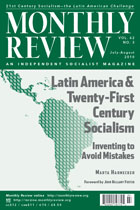Australia: Report shows how to reach 100% renewable stationary energy by 2020

To download the full Zero Carbon Australia Stationary Energy
Plan click HERE (8.4MB). You can also download a 16-page synopsis HERE.
Hard copies can be purchased from the Melbourne Energy Institute.
July 14, 2010 -- Don't miss out on this cutting-edge research, which shows how Australia can reach 100% renewable energy within a decade, using technology that is commercially available right now.
* * *
By Pablo Brait and Leigh Ewbank
Beyond Zero Emissions -- In April, the Australian government abandoned the severely flawed Carbon Pollution Reduction Scheme [a carbon trading scheme], the centrepiece of its national climate policy agenda.
El significado de la Presidencia de Noynoy Aquino
[English version at http://links.org.au/node/1743.]
Behind Bangkok's war in southern Thailand

Below is an excerpt from Thai socialist Giles Ji Ungpakorn's latest book, Thailand’s Crisis and the Fight for Democracy. It provides an historical background to Thai politics from the pre-capitalist era, through the turmoil of the 1930s and 1970s, up to the present day. It has been posted at Links International Journal of Socialist Renewal with Giles Ji Ungpakorn's permission.
Giles Ji Ungpakorn is a political commentator and dissident. In February 2009 he had to leave Thailand for exile in Britain because he was charged with lèse majesté for writing a book criticising the 2006 military coup. His latest book will be of interest to activists, academics and journalists who have an interest in Thai politics, democratisation and NGOs.
Why Catalonia stood up on July 10

By Dick Nichols
Brazil: Left workers’ unity attempt fails

By Raul Bassi
July 11, 2010 -- An attempt to forge greater unity among militant union sectors in Brazil has imploded. The Working Class Congress (Conclat) was held in Sao Paulo on June 5-6 to try and bring together various radical union currents. The key forces behind the congress were Conlutas and Intersindical, both formed in opposition to the main union confederation, the Unified Workers’ Confederation (CUT).
The CUT unites approximately 60 million formal or informal workers out of a total population of 200 million, making it the biggest workers confederation in the continent. The CUT has had a very close relationship with the governing Workers Party (PT), both during its period of ascendency as it emerged out of the militant workers' struggles of the 1970s, as well as during its transformation to what it is today.
Thailand: Reporting from the ‘Red Zones’

By Lee Yu Kyung
July 11, 2010 -- On July 6, the Thai government approved the extension of an emergency decree in 19 provinces, which includes many in the heartland of the pro-democracy Red Shirts in the country’s north-east. The extension came a day after the Brussels-based International Crisis Group (ICG) recommended the government immediately lift the decree and hold fresh elections.
But Prime Minister Abhisit Vejajiva, who came to power through the army’s intervention, crushed hopes for new elections weeks ago.
There have been tireless efforts to silence critical voices before and after the bloody crackdown on the Red Shirts in May. The International Crisis Group said in a July 5 report that more than 2200 websites have been shut down for alleged violations to the Computer Crime Act since the state of emergency was imposed on April 7.
South African soccer: For the love of the game or of money and power?

By Dale T. McKinley, Johannesburg
July 7, 2010 -- The sun has almost set on the soccer World Cup and its seeming suspension of our South African "normalcy". No doubt, many will try their best to continue to bask in its positively proclaimed "developmental legacy"; but, as sure as the sun will rise on the morning after, so too will the reality of that "normalcy" bite us like an unhappy dog. Nowhere will this be more apparent than in the world of South African soccer itself.
Classic cartoon by Fred Wright: `How much do you pay your boss?'

Drawing on the American Labor movement – Fred Wright (1907-1984) was one of the United States’s most renowned labo

Frelimo poster for its third congress in 1977.
Barry Sheppard reviews Peter Camejo's `North Star -- A Memoir'
North Star – A Memoir
By Peter Camejo
Haymarket Books, Chicago, 2010
Timor Leste and Australian activists reject Australian government's racist refugee policy

Statement by Luta Hamutuk, Timor-Leste Institute for Research, Advocacy and Campaigns

